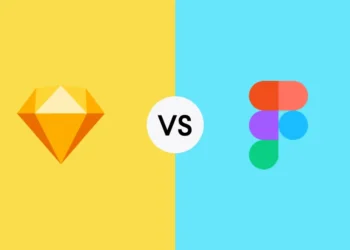Nigeria’s payment landscape is evolving rapidly, with bank transfers becoming the most preferred digital payment method. This shift was reinforced on March 24, 2025, when Paystack officially launched Zap, a consumer-facing app designed for instant bank transfers.
“Zap isn’t trying to be a neobank; it focuses on just one thing which is fast, reliable bank transfers,” said Shola Akinlade, Paystack’s CEO and Co-founder.
Paystack’s move aligns with a larger trend. In 2023, transfers made up 58% of all Paystack payments, making them the most popular payment method for its users. Similarly, Flutterwave’s 2024 report found that 51.77% of all transactions in Nigeria were completed via transfers. Data from the Central Bank of Nigeria (CBN) also supports this, showing that bank transfers dominate both in transaction volume (51.91%) and value (52.95%).
Why Are Bank Transfers Taking Over?
While digital payments in other African countries like South Africa, Ghana, Kenya, and Uganda still rely on mobile money wallets where transfers make up less than 2% of transactions, Nigeria has taken a different path. Several key factors have contributed to the dominance of bank transfers.
The High Cost of Debit Cards
One major reason why bank transfers have taken dominance is the cost of obtaining and maintaining debit cards in Nigeria. Many Nigerians are unwilling to pay the fees, which range from ₦800 to ₦2,500, including delivery charges.
According to Adedeji Olowe, CEO of Lendsqr, only 35.5% of Nigerians over 18 own a debit card, partly due to these costs. For many, transfers provide a free and accessible alternative.
Card Wear and Tear and Banking Hassles
Physical debit cards also suffer from wear and tear. Many Nigerians struggle with faded numbers on their cards, making online payments nearly impossible. Additionally, many banks require customers to visit a branch to replace lost or damaged cards, a tedious process that discourages card use.
“Most people remember their PINs, but their cards have been inserted into ATMs so often that the numbers peel off,” Olowe explained. “If you can’t read your card details, you can’t use it for online transactions.”
Virtual Accounts Make Transfers Easier
Another factor driving the adoption of bank transfers is the rise of virtual accounts. These unique account numbers help businesses, especially small ones, accept payments seamlessly without needing a physical POS terminal. This has made transfers a more convenient payment method.
Security Concerns and Transaction Simplicity
Many Nigerians are wary of using their cards for online payments due to the rising threat of fraud. Unlike cards, transfers don’t require users to share sensitive financial details, making them a safer option.
Additionally, when a card payment fails, resolving the issue is often complicated. Card transactions typically involve four or more parties, while bank transfers usually involve just three. The extra step in card transactions means more chances for things to go wrong, making transfers the easier and more reliable option.
The Future of Bank Transfers vs. Cards
Despite the decline in card usage, bank transfers won’t completely replace them. Yvonne-Faith Elaigwu, Head of Operations at OnePipe, sees transfers as the next step in payment evolution rather than a full replacement for cards.
“It won’t kill them. Fintechs are growing, but banks aren’t disappearing,” she said. “Eventually, banks and card providers will find ways to fix the issues that are pushing people toward transfers.”
For now, however, bank transfers continue to dominate Nigeria’s payment space. As fintechs refine their services and improve transfer speeds, this trend is set to continue, shaping the future of payments in the country.
READ MORE:
Nigerian fintech Payhippo rebrands as Rivy, raises $4 million for clean energy financing
Paystack Enters Consumer Payments with Zap, a Fast Money Transfer App




